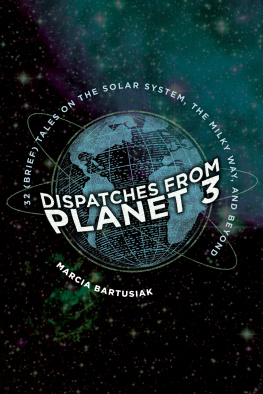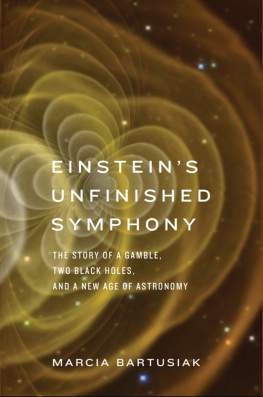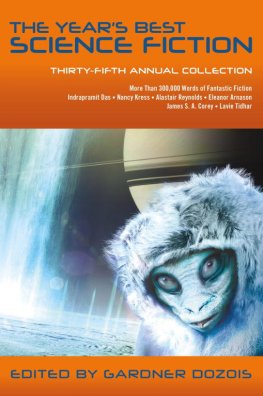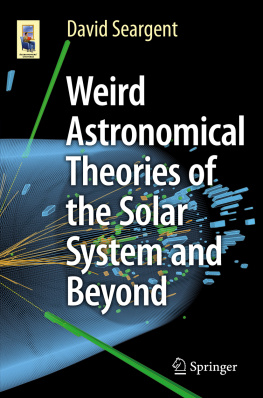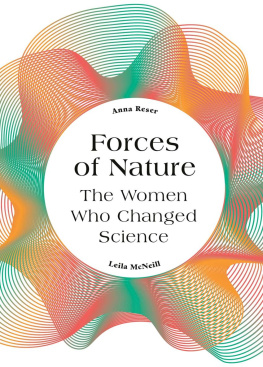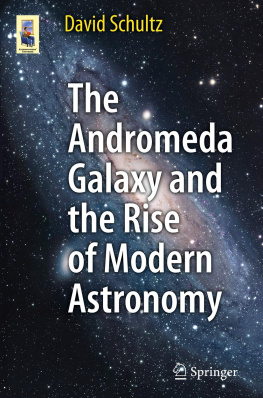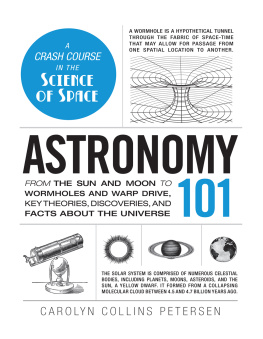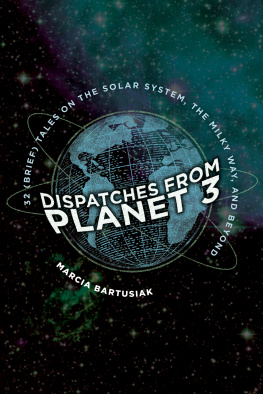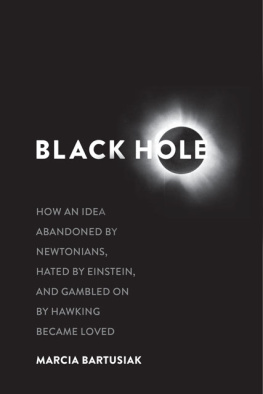DISPATCHES FROM PLANET 3
Also by Marcia Bartusiak
Thursdays Universe
Through a Universe Darkly
Einsteins Unfinished Symphony
Archives of the Universe
The Day We Found the Universe
Black Hole

Published with assistance from the foundation established in memory of Philip Hamilton McMillan of the Class of 1894, Yale College.
Copyright 2018 by Marcia Bartusiak.
All rights reserved.
This book may not be reproduced, in whole or in part, including illustrations, in any form (beyond that copying permitted by Sections 107 and 108 of the U.S. Copyright Law and except by reviewers for the public press), without written permission from the publishers.
Illustration courtesy of Barbara Schoeberl, Animated Earth, LLC, for the cutaway of a massive star in Chapter 15.
Yale University Press books may be purchased in quantity for educational, business, or promotional use. For information, please e-mail (U.K. office).
Set in Janson type by IDS Infotech, Ltd.
Printed in the United States of America.
Library of Congress Control Number: 2018933935
ISBN 978-0-300-23574-6 (hardcover: alk. paper)
A catalogue record for this book is available from the British Library.
This paper meets the requirements of ANSI/NISO Z39.48-1992 (Permanence of Paper).
10 9 8 7 6 5 4 3 2 1
For Steve, my polestar
Contents
Preface
Almost no discovery in astronomy is a total surprise. Not really. Sifting through the histories of unexpected findings, one frequently encounters early hints, precursors, a sense of something in the air. As Isaac Newton famously noted in the seventeenth century, If I have seen further, it is by standing upon the shoulders of giants. In other words, predecessors often pave the way, which makes the journey toward a new scientific vision possible.
My mission over the past several years, when writing the essays contained in this book, was to provide the back story for many recent astronomical discoveries. These explorations have included events in our nearby celestial neighborhood and out to the farthest reaches of the universe. Even beyond space-time to the multiverse.
I had no determined path in the course of my inquiries. Upon coming across a specific news item that piqued my interest, I headed to the archives to uncover a richer context. The controversial demotion of Pluto to dwarf planet, for example, reminded me when another solar-system member was similarly downgraded in the nineteenth century. And the discovery of an amino acid within a stream of interstellar dust is only the latest confirmation of our intimate connection to the cosmos, knowledge that is surprisingly recent. For most of history, astronomers were not at all sure that the stuff of the heavens was the same as the stuff on Earth. And when news stories kept referring to Edwin Hubble as the discoverer of the expanding universe, I couldnt help but let readers know that a humble Belgian cleric, Georges Lematre, and a former Midwest farmboy, Vesto Slipher, were equally responsible for revealing this astounding cosmic property.
My armchair investigations whisked me off in spirit to exotic locales: to ancient Mars, when liquid water once flowed freely on its surface; to an ensemble of galaxies that to our eyes resembles Alice in Wonderlands Cheshire Cat; to the collision of two massive black holes a billion light-years away, an event that released fifty times more energy than all the stars in the universe were radiating at that moment; and finally down to the limit of the smallest quantum grain, where space and time allegedly come unglued and start to wink in and out of existence in a probabilistic froth.
While assembling these articles into book form, I was pleasantly reminded: I hadnt kept track of how many women I had portrayed over the years. I always let the news set my agenda and, lo and behold, there they were. Vera Rubin brings dark matter to the forefront of astronomical concerns; Jocelyn Bell keenly spots a bizarre new star; Henrietta Leavitt ingeniously devises a revolutionary cosmic yardstick; Jane Luu co-discovers the first solar-system object beyond Neptune and Pluto; Beatrice Tinsley proves that galaxies evolve; Cecilia Payne tries to reveal the universes major elemental ingredient (until told to ignore it); and Margaret Burbidge contributes the observational proof that the calcium in our bones, the iron in our blood, and the oxygen we breathe came from the ashes of ancient stars. Many of these names are not found in astronomy textbooks, so it was gratifying to bring them into the spotlight.
These are among the thirty-two stories in this collection, which I have loosely arranged, starting with our solar system and working outward in space-time to the Big Bang... and beyond. There is no need, however, to read them in this particular order. For the most part, each chapter stands alone, so you are welcome to wander, as I have, along your own desired path among the stars.
DISPATCHES FROM PLANET 3
CHAPTER ONE
Earth Is but a Speck
Our cosmic address keeps getting longer
W ALK into an open field on a clear, moonless night. Overhead, sparkling stars are sprinkled across the sky. All of them seem equidistant from youand no one elseand you are lulled into imagining yourself at the center of the universe.
For nearly five hundred years, astronomers have struggled to break that illusion. Our petty standing in the cosmos is a scientific fact, if not a visceral experience. Earth zips at nearly 67,000 miles (108,000 kilometers) an hour around the Sun, which in turn completes one lap around the Milky Way every 220 million years, meaning that the last time we were in this neck of the galaxy, dinosaurs were getting ready to rule the planet. Still, as you look skyward in that pitch-black field, Earth seems to be at the heart of all creation.
We should blame Aristotle for initiating that perspective. So authoritative was his pronouncement of an Earth-centered universe in the fourth century BC that few challenged the idea for nearly two millennia. But over time, the urge to better explain the universes behavior gave rise to new concepts of Earths celestial position. In 1543, Nicolaus Copernicus reintroduced a hypothesis first posited by the ancient Greek Aristarchus of Samos some eighteen centuries earlier. His model boldly placed the Sun at the center of the universe, shoving the Earth into motion. The radiant Sun was at last in its proper perch, as if resting on a kingly throne, wrote Copernicus.
Copernicus was not disturbed at all by a moving Earth, frightening as that might seem at first. More disturbing to him was the rotating sky in an Earth-centered universe. The farther out one moves from a stationary Earth, the faster and faster the sky must move to stay in place. But the Polish mathematician and astronomer knew quite well the consequences of challenging conventional notions. In the preface to his great work De revolutionibus orbium coelestium (On the revolutions of the heavenly spheres), he predicted that as soon as certain people learn that in these books of mine... I attribute certain motions to the terrestrial globe, they will immediately shout to have me and my opinion hooted off the stage.
That misfortunate fate fell upon Galileo, who starting in 1609 gathered the crucial evidence supporting Copernicuss heliocentric vision. In 1633 he was brought before the Inquisition and eventually put under house arrest for daring to oppose an Earth relaxing at the universes center.
By the time of Newton decades later, though, such hostility had finally faded. For one, Sir Isaacs physics could at last explain why we arent thrown off the planet as the Earth rotates and orbits the Sun. Yet even though Copernicus moved Earth from the hub of the solar system, its inhabitants remained confident that they retained a privileged place at the center of the Milky Way, then thought of as the sole galaxy.
Next page
